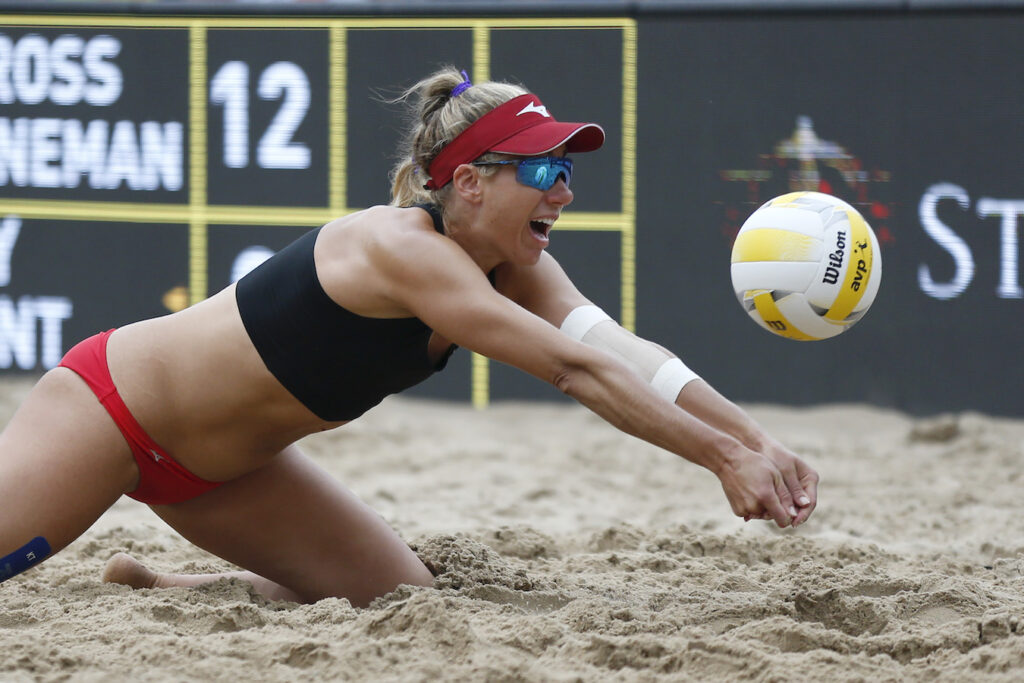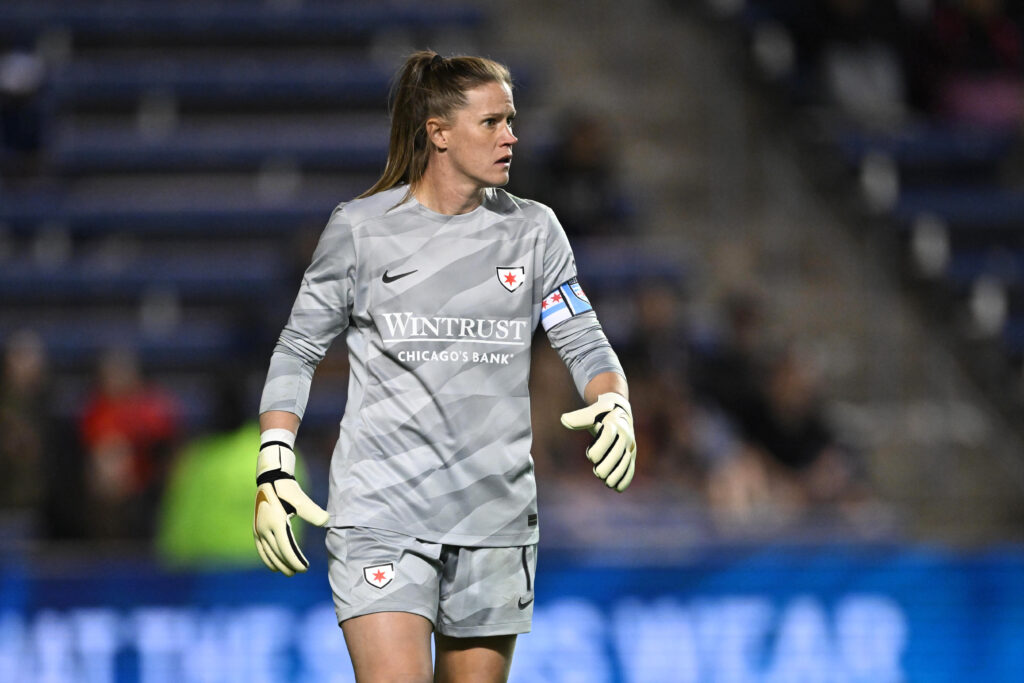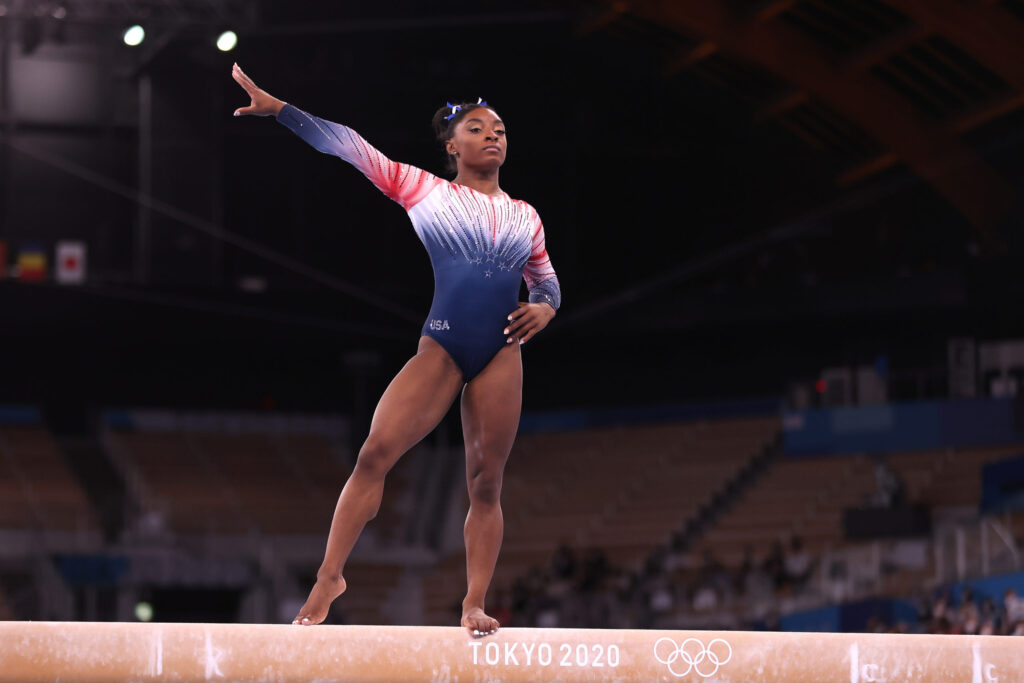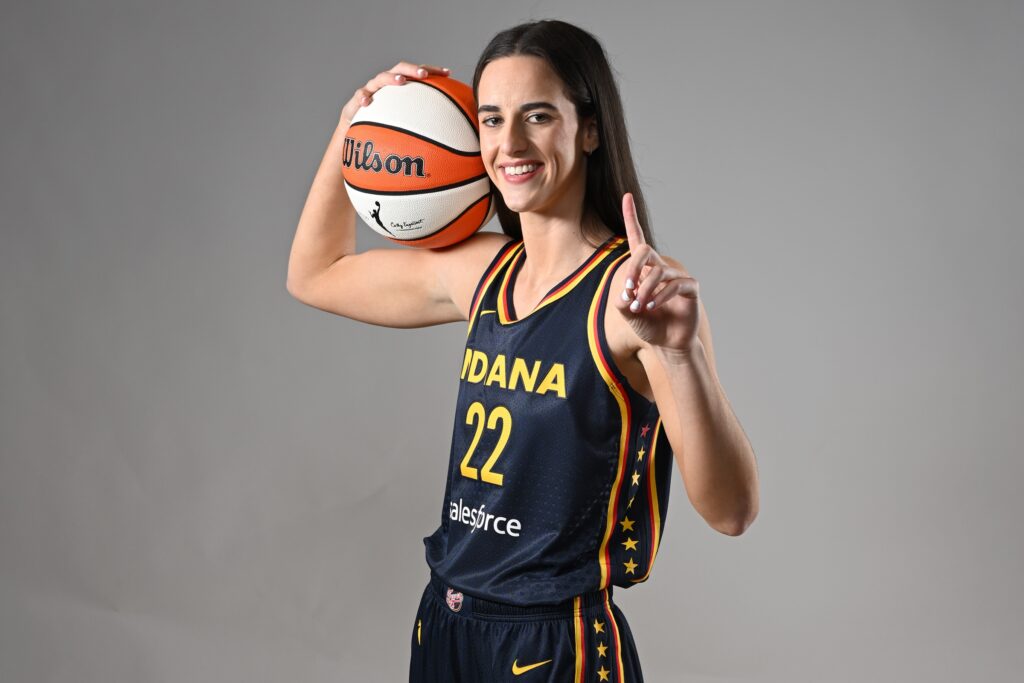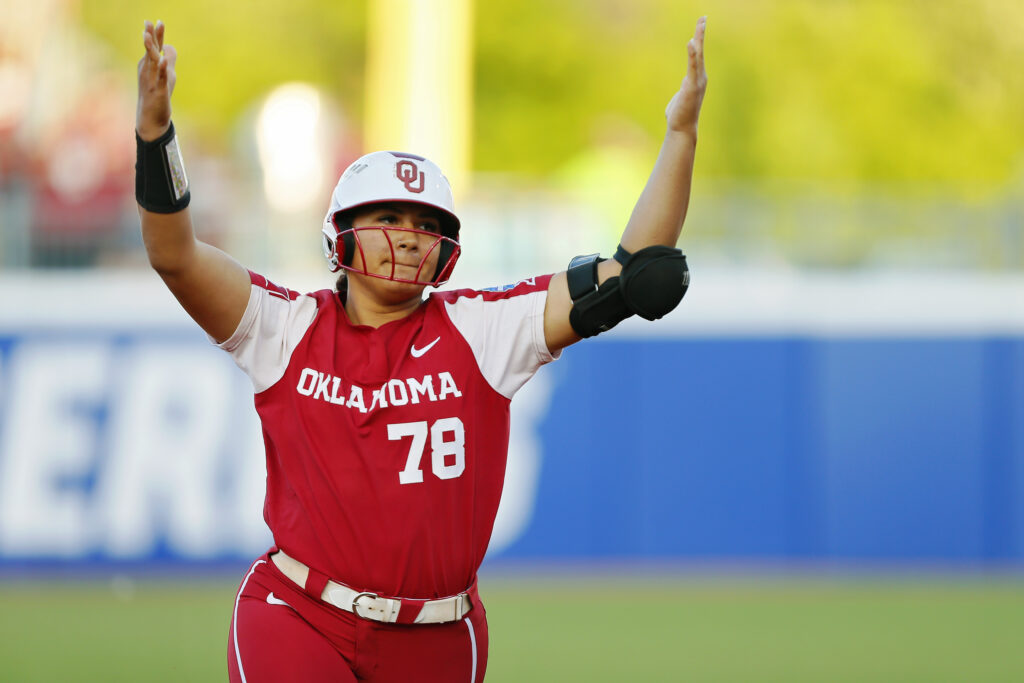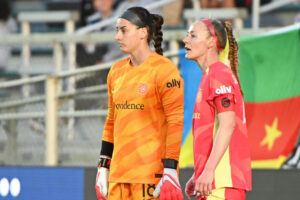April Ross fell in love with volleyball twice.
There was the time she first played on a competitive indoor team, before her freshman year of high school, when Ross says she was “for sure the worst person in the gym” but craved the challenge and the thrill of getting better.
Then there was the time volleyball found her, a few years after she had graduated from college and was fed up with the isolation of playing professionally in Puerto Rico. In fact, Ross was intent on giving up the sport entirely. She had plans to go back to school and get a job.
And unexpectedly, she got a call from a former teammate at USC: Would Ross give beach volleyball a shot, partner with her and help her qualify for the AVP Tour?
“I was like, ‘I’ll try it. I’m not very good,’” Ross said.
“And I just loved the culture. I loved the people. I loved the idea that I might get to see the world because that was always my No. 1 goal growing up, to travel and see the world. So I just dove in, like, let’s see where this takes me now.”
For Ross, who’s now a favorite to win gold with partner Alex Klineman in Tokyo, her third Olympic Games in beach volleyball, those memories matter. The successes and the failures, the doubts and the joys over the years have given Ross a unique perspective heading into what could be her final act.

In a way, Ross’ mental preparation for this Olympics run began during her sophomore year of college.
The No. 1 indoor volleyball recruit out of high school in Newport Beach, Calif., Ross chose USC and excelled immediately. She played a key role in the Trojans’ run to the 2001 Final Four and was named the National Freshman of the Year. As Ross’ national profile grew, so too did the expectations.
Soon after Ross began her sophomore year, however, she lost her mother to breast cancer. And suddenly, none of those material achievements mattered.
“I was devastated, but I kept playing and didn’t understand anything about the grieving process and the impact on a psychological level,” she said. “It was just, go through it and deal with it the best that I can.”
Ross started sleeping through her 8 a.m. classes, partying more and paying less attention to her general well-being. Her grades suffered, to the point where she nearly lost her NCAA volleyball eligibility. She mostly kept it together on the court, earning second-team All-American honors that season, but her health eventually caught up to her. Ross sprained her ankle in the Elite Eight and USC missed out on a return trip to the Final Four.
“It really came down to: If my mom was still here, how would she want me to be reacting?” Ross said. “Would she want me to be doing all of this or would she want me to be responsible and uphold the values that she instilled in me, which were taking care of school, giving my all to volleyball and taking care of myself? So it was just a shift in perspective, and it was really powerful for me.
“It definitely changed the trajectory of my college career and played a big part in my future success.”
Ross started keeping a paper schedule, which she still uses to this day. She tracked the times of her classes and workouts, she set a strict lights-out at 11 p.m. and wake-up at 7, and she started cooking healthy foods, just like her mom used to do for her.
The change in routine paid off. In her final two seasons at USC, Ross led the Trojans to back-to-back NCAA championships. Her senior year, she won the Honda Sports Award as the nation’s top collegiate player in volleyball.
The lessons Ross picked up in college kept her grounded during the early years of her professional life, when the uncertainty about her future nearly drove her from the sport altogether. And the experiences Ross had at her first two Olympics, winning silver in London in 2012 and bronze in Rio in 2016, have only clarified her journey at this stage of her career.
“In the first one, I was just super stoked that we were able to qualify. I didn’t have any expectations for us, really, and then we ended up in the gold medal match,” said Ross, who partnered with Jennifer Kessy in London and Kerri Walsh Jennings in Rio. “It was afterwards that I wish I had done things a little bit differently, had higher expectations for myself, prepared a little bit better.
“So going into Rio, I took those lessons to the extreme in a way, over-corrected and had that sole expectation of winning the gold medal. I was hyper-focused and didn’t do anything that was really fun or outside of training and kind of missed the Olympic experience.”
Ross, 39, knows this could be her last Olympics. From years of gaining perspective, she also recognizes she’s more at peace with her career than she’s ever been, and that might be the key to finally winning gold.
“That’s the goal, and the vision of that happening is very motivating and exciting. But at the same time, knowing that sports and life are full of uncertainty,” Ross said.
When she steps onto the sand in Tokyo for her and Klineman’s first match over the weekend, Ross won’t be looking too far ahead. She’ll enjoy every point, every set, every win and every loss, because this is what she loves to do.
“The only things we can control are our attitudes and our preparation,” she said. “The gold medal is not the end all, be all of everything in life, and we’ll be OK no matter what.”
